Fraud against private enterprises is draining billions from UK businesses, and increasingly it is thecompanies’ own management that are responsible
The enemy may lie within
Fraud is costing the UK economy £73bn according to the Home Office’s National Fraud Authority, so it is no wonder that government and private enterprise alike consider it to be an imperative to combat this crime.
Further bad news for private companies is that the latest government statistics show fraud against private enterprises is a major part of the overall figures, accounting for £45.5bn - a number that equates to 1.4% of total UK private sector turnover.
The numbers from KPMG support the government’s findings. Although KPMG forensic partner Hitesh Patel reveals that the figures actually fell back slightly at the start of this year, he sees no cause for optimism.
KPMG measures its figures against court cases and, Patel explains, “the main reason for the drop to £363m for the first half of 2012 [compared with £1.1bn for the first six months of 2011] was that in the first half of 2011 there were a number of exceptionally high-value cases.”
The overall trend, he stresses, has been a continual upward curve. Government initiatives have helped: a campaign against VAT scams, for example, resulted in lots of cases relating to VAT carousel fraud.
“My gut feeling is that the 2012 figures are just a blip,” says Patel. “There were fewer VAT-related cases, but other fraud is continuing to come through. I think it is just a lull.”
More worrying still for business is that the only element not to fall back in early 2012 was internal crime against employers.
Fraud by management accounted for 57 cases during 2011, with a value of £729.3m - an increase of 74% on the previous year.
Management often inflict the greatest damage to an organisation as they are able to operate fraudulently with greater ease, by virtue of the trust and authority placed in them, and their ability to conceal their tracks more convincingly.
One case, which accounted for £380m, involved the owner of a hedge fund. After the fund collapsed in the aftermath of the recession, he was accused of improperly inflating its reported assets following a series of fraudulent transactions.
Patel says: “Sadly, owing to the current economic circumstances the forecast is that the situation will get worse before it gets better.
“It is important that organisations don’t become myopic on this point, and that they have robust prevention and detection mechanisms so they don’t lose value through the back door that they have worked so hard to preserve through these difficult times.”
So far in 2012, 56% of all cases have involved management fraud. “Historically, fraud has been led by organised criminals,” says Patel, “but these latest figures suggest that senior management crime has overtaken them in causing the most damage to businesses.”
He suggests that ever-increasing pressure on businesses to succeed may be contributing to the figures.
Historically, fraud has been led by organised criminals, but these latest figures suggest that senior management crime has overtaken them in causing the most damage to businesses
Hitesh Patel
KPMG
Bosses are passing that pressure down the chain, which may also result in otherwise law-abiding citizens “cooking the books” to either maintain bonuses or possibly keep their jobs.
Fraud is always difficult to put real numbers on. It can only be confirmed once someone is caught. The Treasury’s drive against VAT carousel fraudsters is an example of that.
Advancing techniques
Another government initiative comes from the Serious Fraud Office (SFO), which is reporting another successful year with increased prison sentences for white collar criminals and more than £50m in assets recovered from the proceeds of crime, which is up from £42.5m the previous year.
In its annual review for 2011/12, published in the summer, the SFO says that its actions have secured prison sentences averaging 55 months for each convicted fraudster, up from an average of only 30 months in 2010-11.
While there is a view that advances in technology have helped criminals perpetrate their crimes, the SFO believes this has also aided their detection.
“It has been vital to harness advanced technology particularly in helping the SFO deal with massive increases in data handling,” it says.
“In 2011 the SFO’s digital forensic unit processed around 13 terabytes of data - the equivalent of 650,000 trees’ worth of paper or more than 5.5 billion single-spaced typed pages; which if stacked up would tower more than 1.4 million kilometres high.”
Former SFO chief executive Phillippa Williamson acknowledges that part of the SFO’s success is based on increasing its data processing capability by more than 1,800% in the past three years. But it is also about looking beyond traditional adversarial approaches.
She says: “The £29.5m payment that BAE Systems made to Tanzania under its settlement with us is a prime example, as is the Mabey & Johnson case, where we helped new management draw a line under the malpractice they found.
“In this case we also forced shareholders to pay back dividends derived from contracts won through unlawful conduct. In future, shareholders and investors in other companies should satisfy themselves about the business practices of the companies they invest in, or face the prospect of the SFO taking civil action against them to recover money.”
How to combat fraud in your business
Too many boardrooms are in denial that fraudulent activity could take place in their company
While the Government is attempting to take a strong lead in the fight against white collar crime, there are many actions that individual firms can do by themselves.
The first is to recognise and understand that the problem of fraud exists. Getting that message across to senior directors, however, is not always straightforward.
“The worst people at understanding fraud are top management,” says Hibis Europe managing director Allan McDonagh.
“You walk into the boardroom and it all just goes straight over their heads.”
When it comes to issues of fraud, he contends that senior management sometimes have their heads in the sand.
Why this should be the case is often complicated but, in essence, comes down to the simple reason that most boards convince themselves that fraudulent activity could not happen within their business because, somehow, they are different as an organisation.
This culture of denial creates the perfect conditions for fraud to take place and, indeed, flourish.
Changing the culture of a business is also important, says McDonagh, as the tone of behaviour is set by those at the top.
“People are as honest as fraud controls allow,” he says, and reinforces his point by recounting an example of nuns who sold a country house without informing their bishop, and retired to the south of France with the proceeds.
“If you think your company is different, your culture is different, relax these controls and you will have problems,” he warns.
Appointing a principal fraud officer is important in terms of prevention, as is targeting the departments that are most likely to get attention from potential fraudsters - such as accounts payable, where staff are able to spot unusual invoices.
But detection is sometimes a simple case of looking at what is around you: the type of vehicles on the staff car park, for example, can offer a clue to fraudulent activity.
There is also a gender divide in the nature of those swindling a company. Typical male fraudsters are characterised by a lack of intelligence, coupled with vanity, arrogance and an extravagant lifestyle, which often lead to them being caught.
Driving cars beyond their obvious means can be an indicator of this - as is a propensity to take expensive exotic holidays or purchase ostentatious watches or jewellery. Use of black holes relating to controls in their working sectors are also a giveaway sign for men.
Women committing fraud, on the other hand, are typically less flamboyant and, as a consequence, their crimes can be far more difficult to detect. McDonagh, who admits to being constantly shocked by women fraudsters, says they are frequently motivated by factors other than personal greed.
The proceeds of their actions are often used to pay for school fees or care for a sick relative. The quiet personality of the typical female fraudster often helps to conceal their criminal activity.
If you think your company is different, your culture is different, relax these controls and you will have problems
Allan McDonagh
Hibis Europe
However, combine this with other factors, such as rarely taking holidays or a record of bad health, and an investigator may profile enough to have their suspicions aroused.
Having anti-fraud measures in place will help an organisation prevent crimes and improve rates of detection.
They will not in themselves, however, stop such activity completely - nor will they catch all those engaged in criminal behaviour.
ACE UK and Ireland financial institutions manager Chris Madell says companies need to put measures in place to limit fraud, for example, preventing financial fund transfer fraud by reintroducing a physical call-back procedure instead of relying on email receipts.
Rethinking whistleblowing
Whistleblowing is the main reason for most fraud being detected, but those who speak out often find themselves paying a heavy price.
Grant Thornton forensic investigation partner Will Davies concedes he has “never met a whistleblower who was better off after the event”.
As such, more needs to be done to protect those people prepared to reveal fraud and also to encourage others to talk. “If you have a good and effective whistleblowing policy, you will detect more fraud,” he says.
Just 3% of frauds were detected by annual audit and only 11% by internal audits. Whistleblowing snares far larger numbers, but can be even more effective if it is made easier for those looking to speak out.
Davies cites the whistleblower programme within the US Dodd-Frank Act, which aims to reward individuals who act early to expose violations and who provide significant evidence that helps bring successful fraud prosecutions.
McDonagh agrees, but believes firms should replace “whistleblowing” with the term “speaking up” when introducing the policy, as it sends out a more positive message about the practice and is less “grubby”. Staff should be told it is their job to report issues where they are identified, he says.
Detecting fraud is one issue; securing a conviction, quite another. Recent research from the University of Portsmouth’s Centre for Counter Fraud Studies found that only about 1.5% of fraud cases were reported, with only 0.4% of those resulting in a successful prosecution.
The report points to a lack of resources, training and awareness as key contributors to the problem. To counter this, its authors recommend UK businesses consider using private prosecutions.
They suggest establishing a not-for-profit organisation to help small to medium-sized companies pursue and prosecute fraudsters, in addition to deploying specialist fraud officers across the police.
Centre for Counter Fraud Studies director Dr Mark Button says: “We were shocked at the tiny proportion [of cases] that are dealt with by the criminal justice system.
“We were also surprised at the many alternatives to criminal prosecution that could be just as effective, but which are generally under-utilised by organisations. It is vital we do more to punish fraudsters, and we hope this report helps to stimulate further action and debate.”
Fraud is a complex crime, and firms can take a range of measures to limit its impact and, in some cases, prevent it. Although it can never be stopped completely, the damage can be curtailed - particularly with insurance.
ACE’s Madell calls insurance protection a “must”, but balances it by saying that cover should be considered like an umbrella in the rain. “It isn’t totally weather proof,” he says, “but it will certainly help.”
The world’s highest profile fraudsters
• Jerome Kerviel: the man who lost $7bn at French bank Société Générale.
• Dennis Kozlowski and Mark Swartz: respectively chief executive and chief financial officer of Tyco, accused of the theft of more than $150m from the company.
• Bernard Ebber of WorldCom: accused over his role in an $11bn fraud at WorldCom, which ultimately closed the company.
• John Rigas: owner of Adelphia Communications, accused together with his sons of hiding $2.3bn in debt and false earnings.
• Kenneth Lay, the creator of Enron: accused of institutionalised fraud that cost millions, left many without pensions, and ultimately changed the laws of the USA.
Occupational fraud in numbers
• A typical firm loses 5% of its revenues to fraud each year. This translates to a projected annual fraud loss of more than €2.9 trillion.
• The median loss caused by occupational fraud was €114,000. More than one in five cases caused losses of at least €800,000.
• Reported frauds lasted a median of 18 months before being detected.
• Asset misappropriation schemes were by far the most common type of occupational fraud - comprising 87% of cases reported to the Association of Certified Fraud Examiners (ACFE).
• Occupational fraud was more likely to be detected by a tip-off than any other method.
• Corruption and billing schemes pose the greatest risk to global organisations.
• Occupational fraud is a significant threat to small businesses, which typically suffer the largest median losses. These organisations usually employ fewer anti-fraud controls than their larger counterparts.
• In the study, industries most commonly hit were banking and financial services, government and public administration and manufacturing sectors.
• Presence of anti-fraud controls is notably correlated with significant decreases in the cost and duration of occupational fraud schemes.
• Perpetrators with higher levels of authority tend to cause much larger losses. Median loss among frauds committed by owner/executives was €468,000; median loss caused by managers was €147,000; and median loss caused by employees was €49,000.
• The longer a perpetrator has worked for an organisation, the higher fraud losses tend to be.
• Most frauds (77%) in the ACFE study were committed by individuals working in one of six departments: accounting, operations, sales, executive/upper management, customer service and purchasing.
• Most occupational fraudsters are first-time offenders with clean employment histories.
Association of Certified Fraud Examiners’ 2012 Global Fraud Study Report To The Nations on Occupational Fraud and Abuse




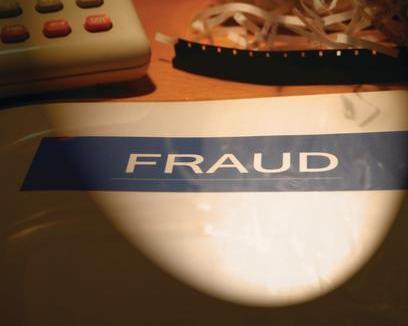

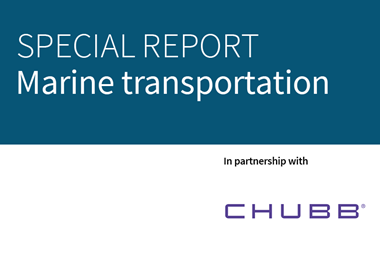
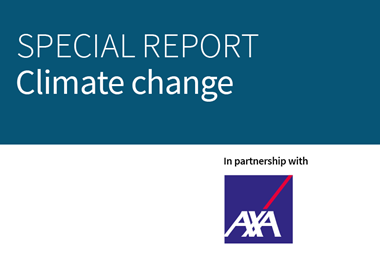

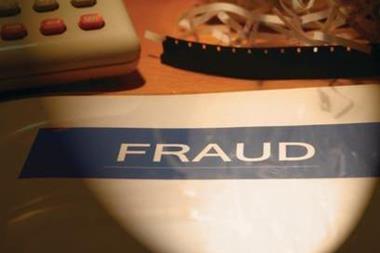

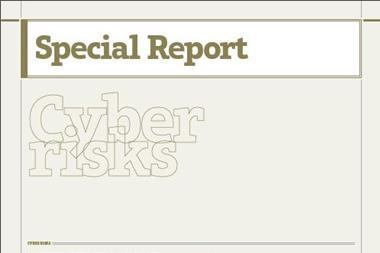









No comments yet